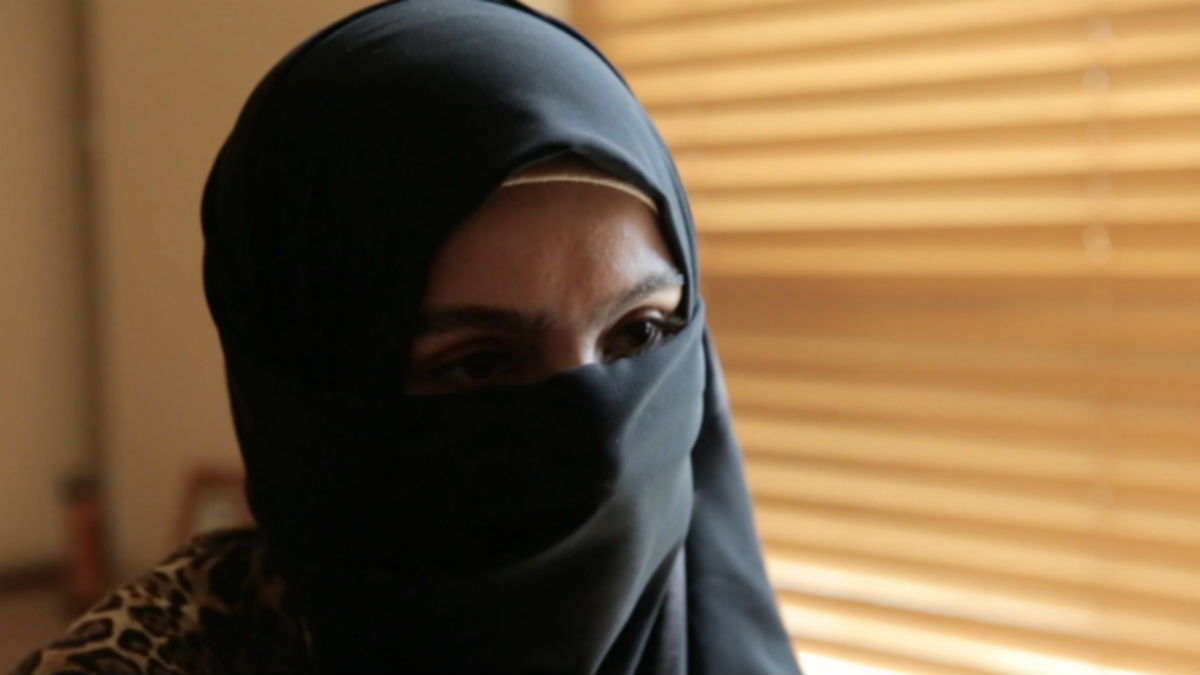Employers can ban staff from wearing headscarves, says EU court
Top European court says the veto on the 'visible wearing of political, philosophical or religious signs' is not discrimination

A free daily email with the biggest news stories of the day – and the best features from TheWeek.com
You are now subscribed
Your newsletter sign-up was successful
Employers can bar workers from wearing Islamic headscarves or any obvious religious or political symbols such as the burka, the European Court of Justice has ruled.
The court gave a joined judgment in the cases of two women in France and Belgium who were dismissed for refusing to remove their headscarves.
"An internal rule of an undertaking which prohibits the visible wearing of any political, philosophical or religious sign does not constitute direct discrimination," the court said in a statement.
The Week
Escape your echo chamber. Get the facts behind the news, plus analysis from multiple perspectives.

Sign up for The Week's Free Newsletters
From our morning news briefing to a weekly Good News Newsletter, get the best of The Week delivered directly to your inbox.
From our morning news briefing to a weekly Good News Newsletter, get the best of The Week delivered directly to your inbox.
However it ruled that the company must have a policy that bars religious signals and requires employees to "dress neutrally".
If there was no such policy in place, dismissal over wearing an Islamic headscarf would constitute discrimination, it said.
The Open Society Justice Initiative, a group which supported the two women in the cases, told Reuters it was disappointed by the ruling which it said "weakens the guarantee of equality that is at the heart of the EU's anti-discrimination directive."
"In many member states, national laws will still recognise that banning religious headscarves at work is discrimination. But in places where national law is weak, this ruling will exclude many Muslim women from the workplace," said the initiative's policy officer, Maryam Hmadoun.
A free daily email with the biggest news stories of the day – and the best features from TheWeek.com
In Belgium, Samira Achbita was fired when, after three years of employment, she began wearing a hijab to work at the security firm G4S, reports the BBC.
The company said she had broken an "unwritten rule" prohibiting religious symbols.
The ECJ ruled that a company's wish to project a neutral image was legitimate, reports The Guardian.
In France, Asma Bougnaoui was fired from an IT company after a client requested she remove her headscarf while on their premises.
The court ruled that the Frenchwoman had suffered discrimination and that customers' wishes did not give companies an excuse from complying with EU anti-discrimination law.
The ruling comes on the eve of a Dutch election in which "Muslim immigration has been a key issue and a bellwether for attitudes towards migration and refugee policies across Europe," says Al Jazeera.
In Germany, the government is considering a partial ban on full face veils. Switzerland's upper house of parliament this week voted down similar plans to ban all veils in public places.
-
 Switzerland could vote to cap its population
Switzerland could vote to cap its populationUnder the Radar Swiss People’s Party proposes referendum on radical anti-immigration measure to limit residents to 10 million
-
 Political cartoons for February 15
Political cartoons for February 15Cartoons Sunday's political cartoons include political ventriloquism, Europe in the middle, and more
-
 The broken water companies failing England and Wales
The broken water companies failing England and WalesExplainer With rising bills, deteriorating river health and a lack of investment, regulators face an uphill battle to stabilise the industry
-
 Greenland’s capital becomes ground zero for the country’s diplomatic straits
Greenland’s capital becomes ground zero for the country’s diplomatic straitsIN THE SPOTLIGHT A flurry of new consular activity in Nuuk shows how important Greenland has become to Europeans’ anxiety about American imperialism
-
 Epstein files topple law CEO, roil UK government
Epstein files topple law CEO, roil UK governmentSpeed Read Peter Mandelson, Britain’s former ambassador to the US, is caught up in the scandal
-
 Iran and US prepare to meet after skirmishes
Iran and US prepare to meet after skirmishesSpeed Read The incident comes amid heightened tensions in the Middle East
-
 Israel retrieves final hostage’s body from Gaza
Israel retrieves final hostage’s body from GazaSpeed Read The 24-year-old police officer was killed during the initial Hamas attack
-
 China’s Xi targets top general in growing purge
China’s Xi targets top general in growing purgeSpeed Read Zhang Youxia is being investigated over ‘grave violations’ of the law
-
 Panama and Canada are negotiating over a crucial copper mine
Panama and Canada are negotiating over a crucial copper mineIn the Spotlight Panama is set to make a final decision on the mine this summer
-
 Why Greenland’s natural resources are nearly impossible to mine
Why Greenland’s natural resources are nearly impossible to mineThe Explainer The country’s natural landscape makes the task extremely difficult
-
 Iran cuts internet as protests escalate
Iran cuts internet as protests escalateSpeed Reada Government buildings across the country have been set on fire